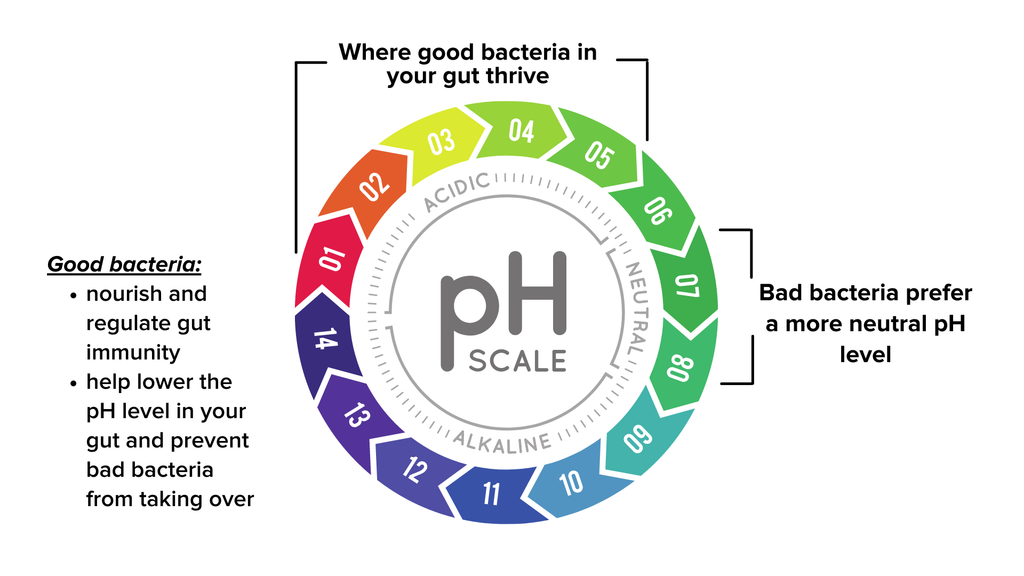Read Time: 4 min | Categories: Body Health | Immunity | Gut Health
How Your Gut Health Affects Your Immunity
Webber Naturals
Share this article
When it comes to your immune system, your gut (also known as your gastrointestinal system) matters more than you think. Not only does the gut digest our food and absorb its nutrients, but it also contributes to healthy immunity.
There is a reciprocal relationship between us and our gut bacteria. The beneficial bacteria that live in our gut have a significant impact on our overall health, and we, in turn, impact our gut bacteria by what we choose to eat. In this blog, we’ll dive into how your gut health affects your immunity, and what you can do for your gut to ensure your immune health is in good shape.
First, Let’s Introduce You to the Microbiome
The microbiome is the community of microorganisms in the gut that includes mostly healthy bacteria (aka probiotics) that help support digestive, immune, and overall health. In a healthy gut, good bacteria outnumber potentially bad bacteria. The good bacteria in our gut perform several functions, from helping with digestion and absorption to supporting our immune system and producing some of our vitamins.
How Does Gut Health Affect Immunity?
Did you know that you have an immune system in your gut? Gut-associated lymphoid tissue (GALT) is where most of the immune cells in the body are located, and areas called Peyer’s patches help your gut immunity communicate with your overall immunity. [1]
Good bacteria help protect not only our gut, but also our entire body from infections. The greater the percentage of healthy bacteria, the more robust the immune protection! [1]
 Let’s talk pH levels – the lower the pH level, the higher the acidity level. When it comes to your gut, we want the environment to be more acidic because that’s where the good bacteria thrive. While bad bacteria prefer a neutral pH, good bacteria help lower the pH and prevent the bad bacteria from taking over.
Let’s talk pH levels – the lower the pH level, the higher the acidity level. When it comes to your gut, we want the environment to be more acidic because that’s where the good bacteria thrive. While bad bacteria prefer a neutral pH, good bacteria help lower the pH and prevent the bad bacteria from taking over.
This is one way in which good bacteria help nourish and regulate gut immunity. While many strains can be beneficial, bifidobacteria and lactobacilli are some of the best probiotics for your gut health and immune system.
 Get Your Daily Dose of Probiotics
Get Your Daily Dose of Probiotics
Fermented foods and drinks such as yogurt, sauerkraut, kimchi, kefir, and kombucha contain good probiotic strains. Read labels to make sure that these foods contain live cultures, as that is how you’ll reap the benefits.
If you need some support to meet your daily needs, consider supplementing with probiotics. There are a ton of options available in various convenient forms, including gummies and powders.
 The Role of Prebiotics
The Role of Prebiotics
Just like you, your good bacteria need nutritious foods – these are called prebiotics. When you eat prebiotics, they’re not broken down and absorbed in the small intestine like the rest of your food, but instead, they make their way to the large intestine, where the good bacteria ferment them. The result? Better immunity regulation! [3]
There are many delicious prebiotic foods to help support healthy gut bacteria. Here are some examples:
- Garlic, which supports the bifidobacteria in the colon. [4]
- Onions and asparagus, which contain inulin, a soluble fibre that supports both bifidobacteria and lactobacilli. [5,6]
- Oats and barley, which contain beta-glucan fibre, a prebiotic fibre that feeds the good bacteria. [7,8]
- Flaxseeds, which contain fibre to support healthy gut bacteria. [9]
- Apples, which contain pectin that has prebiotic benefits. [10]
 Nourish Your Microbiome
Nourish Your Microbiome
Our eating patterns have a significant impact on health, and we can eat to nourish our immune system and gut health. If portion sizes are too large, or our food is high in calories, but low in nutrients, the good bacteria are unable to thrive, the bad bacteria multiply, and our immunity suffers. [2]
The role of the microbiome in immunity is greater than most people know. Who knew you had an entire immune system in your gut? The microbiome is one of the hottest topics being researched in the scientific community, with new studies coming out all the time. Although there is still much to learn, one thing we do know is that eating to support your microbiome will benefit both your immunity and your overall health.
